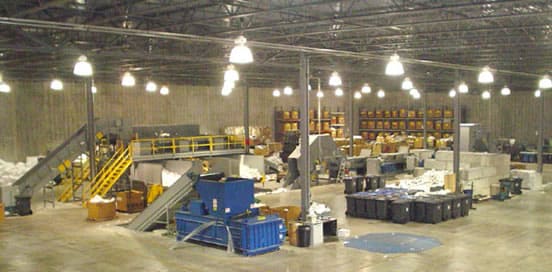Residential Document Shredding in Ohio & Across the Midwest
Secure, On-Demand Bulk Document and Data Destruction
.png)
Residential Shredding Service
From tax returns to credit card bills and pay stubs – even junk mail has your personal and private information on it. No need to rent a personal shredder, have Black Ops Destruction do all of the work. From one bag or box to hundreds, no job is too small. Give us a call and allow one of our Security Consultants securely take that load off of your hands (or out of your garage or basement.)
Residential shredding services are typically provided by companies that specialize in securely destroying confidential or sensitive documents. These services are designed to help individuals and households protect their personal information from identity theft or fraud. Some common types of documents that might be shredded include bank statements, credit card statements, tax documents, medical records, and any other documents that contain personal or sensitive information.
To use a residential shredding service, individuals typically contact the company to schedule a pickup or drop-off of their documents. The company will then securely transport the documents to their shredding facility and destroy them using a shredder that meets industry standards for security.
Request a Quote
File Purge Services:
Protecting Personal Information: One of the primary reasons for using a residential shredding service is to protect your personal information. Identity theft is a growing concern, and shredding your sensitive documents can help prevent criminals from accessing your personal information.
Compliance: Many regulations require businesses and individuals to shred certain documents to comply with privacy laws. By using a residential shredding service, you can ensure that you are in compliance with these regulations.
Convenience: Shredding large amounts of documents at home can be time-consuming and may not be practical for many people. A residential shredding service offers a convenient solution by allowing you to have your documents securely shredded on-site or at a facility.
Environmental Benefits: Residential shredding services often recycle the shredded paper, which is good for the environment. By using a shredding service, you can help reduce the amount of waste that ends up in landfills.

Protect Your Personal Information at Home
Secure your private information with convenient residential shredding services delivered to your door. Get your free home shredding quote now.
-min.webp)
For inquiries about records retention, reach out to us anytime.
Office
Visit us at our office for personalized service and support.
